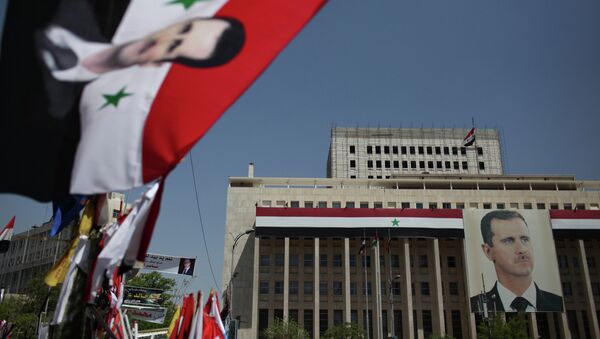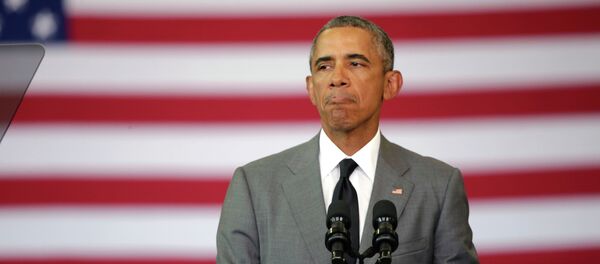DAMASCUS (Sputnik) — Syrian President Bashar Assad said he would resign if the Syrian people deemed it necessary, but the president's resignation cannot be a result of a US or UN Security Council decision.
"For us, the president comes through the people and through elections and, if he goes, he goes through the people. He doesn’t go as a result of an American decision, a Security Council decision, the Geneva conference or the Geneva communiqué. If the people want him to stay, he should stay; and if the people reject him, he should leave immediately," Assad said in an interview with Russian media.
The West has long argued that Assad’s government was not legitimate, with the United States imposing anti-Damascus sanctions in 2011 in hopes that Assad would cede. However, at the presidential election in Syria held in June 2014, Bashar Assad won a landslide victory, garnering 88.7 percent of the vote.
Russia recognizes Assad as the legitimate Syrian authority.
Damascus Seeks to Agree on Transitional Government During Intra-Syrian Talks
Official Damascus seeks to resolve disagreements regarding a transitional government during a third round of intra-Syrian talks in Russia's capital Moscow, Syrian President Bashar Assad said.
"The importance of Moscow-3 lies in the fact that it paves the way to Geneva-3, because the international sponsorship in Geneva was not neutral, while the Russian sponsorship is… Second, there are substantial differences around the ‘transitional body’ item in Geneva. Moscow-3 is required to solve these problems between the different Syrian parties; and when we reach Geneva-3, it is ensured that there is a Syrian consensus which would enable it to succeed," Assad said in an interview with Russian media.
Russia has also hosted two rounds of intra-Syrian peace talks this year in an attempt to promote dialogue between the government and the opposition. In July, Moscow expressed its willingness to host a third round of intra-Syrian consultations.
In August, Khaled Khoja, the Syrian National Opposition Coalition president, outlined four principles for the transition period. The points included the creation of a neutral army, attaining civil peace, a judiciary to rule punishments for criminals and the recovery of economy.
Khoja noted that the structure and organization of a transitional governing body must be decided by consensus.




